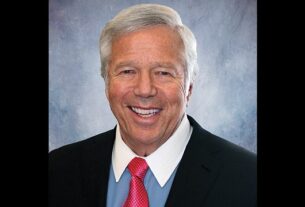
“Space Force” service result at best, will be the same as it has always been here on earth. At worst, this result could be utterly baneful and uniquely catastrophic.
On December 20, 2019, US President Donald Trump signed the National Defense Authorization Act, creating the newest military service since the US Air Force was established in 1947. Although the United States Space Force is intended to bolster this country’s overall power in an expanding geostrategic competition with Russia – the usual or orthodox sort of national response amidst our structural global anarchy – its plausible effects will likely be destabilizing. At its core, the critical US policy error committed here is both conceptual and historic; that is, it consists of failing to recognize that literally millennia of Realpolitik-generated competitions have ended in more-or-less catastrophic forms of war. In essence, therefore, by creating Space Force, Donald Trump will merely have passed America’s most basic military posture “from one untenable position to another….” Apropos of this flawed transmittal, this article by Professor Louis Rene Beres will further clarify certain assorted details and informed expectations.
“What is the good of passing from one untenable position to another, of seeking justification always on the same plane?”-Samuel Beckett, Endgame
Significantly, US President Donald Trump’s newly announced “Space Force” represents an ironic reaffirmation of past policy failures. More precisely, when understood as a witting extrapolation from core Trump policies of “America First,” the operational role of this newest US armed service will be to extend Realpolitikor power politics “vertically,” into space. Prima facie, at best, the predictable result will be the same as it has always been here on earth. At worst, this result could be utterly baneful and uniquely catastrophic.
Space Force will be founded upon certain conspicuous failures of the past. It will project entire centuries of intellectually vacant policy expectations into still another dimension. Accordingly, Americans should now be inquiring: What conceivable “good” can be expected from such a persistently injurious military posture?
The answer is plain. Instead of “America First” or any of its prematurely celebrated derivatives, a rational and well-intentioned American president should reject all zero-sum derivatives or corollaries of “classical” belligerent nationalism. Any American policy that intentionally seeks to maximize its own national well-being at the expense of others will be acting against certain peremptory norms of international law and against its own dominant security interests. By definition, any such policy – especially in the midst of “Cold War II”– could prove incoherent, indefensible or even altogether irrational.
Nothing could be more apparent to anyone who bothers to take the trouble to think logically and historically about such serious matters.In candor, the requisite analyses are by no means dense or esoteric. Indeed, on such long-documented matters of policy, history is unambiguous.
To clarify further, the world is a system. Always, everything is interrelated. Inter alia, no American foreign policy success can ever be achieved at the sacrificial expense of other countries and peoples. And absolutely no such presumptive success is sustainable if the rest of the planet must thereby expect a consistently more violent and explosive future.
Here, on earth, the basic story is always the same; it is always about certain inane and self-destructive inter-state competitions.
Here, on this irremediably interdependent planet, the national tribe, in one belligerent manifestation or another, has long undermined all needed opportunities for creating a durable and authentic world order.
Still, it is exactly this latest expression of corrosive national tribalism that is championed by Mr. Trump’s Space Force. When all cumulative policy impacts are taken into careful account, this “soulless” derivative of America First will inevitably emerge as anything but patriotic. What else should we reasonably conclude about a planned military posture that injures this country and various others abjectly, and at the same time?
Though counter-intuitive, Space Force represents a US security posture that is badly misconceived and prospectively lethal. Left unchallenged, it will further exacerbate the deliberate Presidential choice of endless belligerence as a favored medium of American military well-being. What is required, instead, is the readily decipherable opposite of Space Force. What is needed, immediately, is a markedly broadened US awareness of human and societal interconnectedness.
Always, history is instructive. From the 1648 Peace of Westphalia to the present fragmenting moment, world politics has been shaped by a continuously shifting balance of power and by variously relentless correlates of war, terror and genocide. Ideally, of course, hope should continue to exist. To be sure, there is no rational alternative. But now it should sing much more softly, unobtrusively, in an aptly prudent undertone.
For Americans increasingly endangered by seat-of-the-pants Trump foreign policies, however, more will be required than sotto voce modulations. Merely to survive on this imperiled planet, all of us, together, will have to rediscover an individual human life, one consciously detached from ritualistic patterns of conformance, mindless entertainments, shallow optimism, or any other disingenuously contrived expressions of some retrospectively imagined tribal happiness. At a minimum, such survival will demand a prompt and full-scale retreat from what Donald Trump has termed “America First” and from all of its rapidly dissembling correlates. In this regard, Trump’s Space Force is the foreseeable result of a much deeper societal pathology, a know-nothing American populism that drives out intellect and reason in favor of deliberate mystifications and a collective self-delusion.
Jefferson and America’s other Founding Fathers had already understood: There is always a necessary and respectable place for serious erudition. Learning from history, Americans may yet learn something from “America First” that is useful to opposing any actual iterations of a planned Space Force. They may learn, even during this national declension Time of Trump, that a ubiquitous mortality is far more consequential than any glittering administration promises of “supremacy,” “advantage” or “victory.”
In The Decline of the West, first published during World War I, Oswald Spengler asked: “Can a desperate faith in knowledge free us from the nightmare of the grand questions?” Assuredly, this remains a vital query, but one that will never be adequately raised in our universities, on Wall Street or anywhere in the Trump White House. Still, we may learn something productive about these indispensable “grand questions” by more closely studying American roles and responsibilities in a changing world politics.
At that point we might finally come to understand that the most suffocating insecurities of life on earth can never be undone by further militarizing space and abrogating pertinent international treaties.
In the end, even in American foreign policy decision-making, truth is exculpatory. In what amounts to a uniquely promising paradox, Space Force can help illuminate a blatant lie that may still help us see the underlying truth. This peremptory truth is not really mysterious or unfathomable. Americans require, after all, a substantially wider consciousness of unity and relatedness between individual human beings and (correspondingly) between adversarial nation-states.
There is no more urgent requirement.
None.
Though seemingly oriented toward greater American power and security, building an American Space Force would merely propel this country’s military strategy from one untenable posture of belligerent nationalism to another. What the proponents of Space Force ignore, inter alia, is that all national security options should be examined from the standpoint of their cumulative impact. Accordingly, if the credible effect of this new America First policy initiative will be to spawn various reciprocal postures of belligerent nationalism among principal foes (e.g., Russia and potentially China) the net effect will prove sorely and comprehensively negative.
Far better for President Trump to consider the relevant insight of Pierre Teilhard de Chardin offered in his masterwork, The Phenomenon of Man: “No element can move and grow except with and by all the others with itself.” While not conceived with any particular reference to global chaos or national military strategies, this elucidating fragment of the French Jesuit philosopher’s wisdom applies here with substantial purpose and an altogether exquisite perfection. Summing up, Space Force, in all its apparent detachment from historical experience, represents a move in the wrong direction, a determinative step “forward” into another dimension of prospective international conflict, but a consequentially retrograde step nonetheless.
Louis René Bereswas educated at Princeton (Ph.D., 1971), and is Emeritus Professor of International Law at Purdue. His twelfth book, Surviving Amid Chaos: Israel’s Nuclear Strategy, was published in 2016. His other writings have been published in Harvard National Security Journal; Yale Global Online; World Politics (Princeton); Bulletin of the Atomic Scientists; Israel Defense; Parameters: Journal of the US Army War College; Special Warfare; Oxford University Press; The Jerusalem Post; Infinity Journal; BESA Perspectives; US News & World Report; The Hill; and The Atlantic.
His Terrorism and Global Security: The Nuclear Threat(Westview, first edition, 1979) was one of the first scholarly books to deal specifically with nuclear



